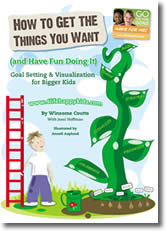Encouraging Independence: Tips for Self-Reliance
Seeing a child say, “I did it myself!” is truly special. Fostering autonomy in young ones is key for their success in preschool and later. By promoting self-reliance, we help them own their actions and choices.
Studies show self-reliant kids are more confident and creative. They face challenges head-on and grow from setbacks. This article will dive into why independence matters and share ways to encourage it in your child.
Key Takeaways
Understand the importance of fostering autonomy in children
Learn practical tips to promote self-reliance
Discover how independence impacts a child's development
Find out how to create a supportive environment for self-reliant children
Gain insights into the benefits of independence for preschoolers
Understanding the Importance of Independence
As a parent, knowing how important independence is for your child is key. It helps them become confident and self-sufficient. Independence isn't just about letting kids do things alone. It's about empowering individuals to control their lives, make smart choices, and be resilient.
Independence is vital for a child's growth. It helps them feel confident in the world. By encouraging self-determination, parents help their kids feel in charge. This is good for their emotional and mental health.
Defining Independence
Independence means being able to think, act, and decide for oneself. For kids, it's about doing things without always being watched, making choices, and solving problems. Developing self-sufficiency in kids takes time, patience, and the right chances.
Benefits of Being Self-Reliant
Being self-reliant is great for kids. It boosts their confidence, problem-solving skills, and resilience. When kids are independent, they feel good about themselves and are more willing to take risks. This is good for their personal and school growth.
Builds confidence and self-esteem
Enhances problem-solving skills and resilience
Fosters a sense of responsibility and accountability
By understanding and promoting independence, parents help their kids become more confident and self-sufficient. This sets them up for success in life and work.
Building Self-Confidence in Children
Building self-confidence in children is key to their independence and growth. When they feel confident, they explore more, try new things, and become more self-reliant.
Teaching children practical skills is a great way to boost their confidence. Learning new skills makes them feel accomplished and positive about themselves. For example, tying shoelaces or making a simple meal can really help.
Techniques for Fostering Confidence
There are several ways to help children feel more confident. Positive reinforcement is very effective. Praise their efforts and achievements to keep them motivated. Also, giving them choices and responsibilities helps them feel capable and trusted.
Encourage them to try new activities and praise their efforts.
Provide opportunities for them to make decisions and take on responsibilities.
Offer constructive feedback that guides them towards improvement.
Encouraging Positive Self-Talk
Positive self-talk is also important for building confidence. Children often listen to their own inner voice. Teaching them to use positive affirmations can greatly improve their self-confidence.
For example, instead of saying "I'm not good at this," they can learn to say "I'll try my best." This change in language can greatly affect how they see themselves and their confidence.
By using these strategies, parents can help their children grow into confident, independent individuals. This will help them face life's challenges with resilience and strength.
Setting Age-Appropriate Goals
Helping our kids become independent is key. Setting goals that fit their age is important. It helps them find purpose and direction. This is the first step in fostering independent thinking and encouraging independence.
Goal setting is more than reaching a target. It's about learning to value effort and perseverance. When kids set goals, they learn the joy of planning and achieving.
Importance of Goal Setting
Goals teach kids to grow and face challenges. They see failures as chances to learn. This builds resilience and confidence.
Goal setting also teaches kids to be specific and make plans. It helps them solve problems and promotes a sense of responsibility.
Examples of Achievable Goals
Goals for kids should be SMART: Specific, Measurable, Achievable, Relevant, and Time-Bound. Here are some examples:
Completing homework on time for a week
Reading a certain number of books within a month
Practicing a new skill, like playing a musical instrument, for a set amount of time each day
By reaching these goals, kids feel accomplished. They also gain confidence to tackle harder goals later.
As parents, we guide our kids in setting goals. We support them every step of the way. This helps them become independent and self-reliant.
Teaching Problem-Solving Skills
As parents, we have a big role in teaching our kids to solve problems. This is key to their independence. By showing them how to tackle challenges step by step, we help them grow more self-sufficient and confident.
Practical Exercises for Problem Solving
Teaching problem-solving through hands-on exercises is effective. You can give them scenarios or real-life problems to solve. Encourage them to think of many solutions and weigh the good and bad of each.
Make a list of problems they might face, like losing a favorite toy or a rainy day. Ask them to plan how to solve these.
Play puzzles, brain teasers, or strategy games with them. These activities sharpen their critical thinking.
It's also important to show them how you solve problems. When you face a problem, talk about your thought process. Explain the steps you take to solve it. This shows them how to tackle big problems one step at a time.
Encouraging Critical Thinking
Critical thinking is essential for solving problems well. Ask your child open-ended questions that make them think deeply. For example, "What do you think will happen if...?" or "How can we make this better?"
Support their curiosity too. Welcome their questions and encourage them to explore. This helps them develop a critical thinking mindset.
Talk about different views on a problem. This shows them there are many ways to solve it.
Have a reflective talk after solving a problem. Discuss what worked and what didn't. This helps them improve their problem-solving skills.
By teaching problem-solving and critical thinking, you're not just promoting self-reliance. You're also giving your child the tools to face life's challenges with confidence.
Fostering Decision-Making Abilities
Teaching kids to make decisions is more than just giving them choices. It's about empowering them for life. Parents can help their children grow confident and self-reliant. This way, they can handle life's challenges.
By guiding them in making decisions, we teach them to trust their judgment. We also teach them to take responsibility for their choices.
Strategies for Teaching Decision-Making
One good way to teach decision-making is by giving choices within set boundaries. For example, "Do you want to do your homework now or after dinner?" This lets your child feel in control while ensuring they meet their responsibilities. Start with small decisions, like what to wear or what game to play, and then move to bigger choices as they show they can make good decisions.
Here are some strategies to consider:
Encourage weighing options: Teach your child to think about the pros and cons of each choice.
Discuss possible outcomes: Talk about what might happen with different decisions.
Model good decision-making: Let your child see you making thoughtful choices.
Encouraging Responsibility for Choices
It's also key to teach kids that making decisions means being responsible for the outcomes. When your child makes a choice, help them see the consequences and learn from them. Talk about what worked well and what didn't, and how they can make better choices next time.
For example, if your child wears an outfit not suitable for the weather, use it as a chance to talk about the outcome. Discuss how they can make a better choice next time. This teaches them about responsibility and the role of emotional awareness in decision-making.
By using these strategies and encouraging responsibility, you can help your child become more confident and self-reliant in making decisions.
Promoting Life Skills in Daily Activities
Teaching life skills in daily life is a great way to help kids grow independent. This approach gives them the tools to take care of themselves. Kids who feel responsible for their lives tend to be more independent.
It's smart to give kids tasks that fit their age. As they get older, they can handle more challenging tasks. This helps them become more independent over time.
Cooking: A Key Independence Skill
Cooking is a key skill that helps kids become independent and self-reliant. Teaching them to make simple meals is a great way to help them. This skill will help them throughout their lives.
Start with simple recipes that require minimal supervision.
Gradually introduce more complex dishes as their skills improve.
Encourage them to experiment with new ingredients and recipes.
Managing Household Tasks
Helping kids with household tasks is important for their independence. By getting them involved in chores, you teach them to contribute to the household. This helps them take care of their living space.
Assign tasks according to their age and ability.
Encourage them to take ownership of their tasks and complete them without being reminded.
Praise their efforts and accomplishments to reinforce positive behavior.
By teaching life skills in daily activities, parents can support personal growth. This helps kids become more independent. As they learn these skills, they'll feel more confident in taking care of themselves. This sets the stage for a more independent future.
Supporting Emotional Intelligence
Encouraging independence in our children is a big journey. Emotional intelligence plays a huge role in their growth. It's not just knowing our feelings; it's about managing them well to make smart choices and form strong bonds.
Emotional regulation is key to emotional intelligence. It means controlling our emotions and responding wisely to situations. Kids who can manage their feelings well deal better with stress, make smart choices, and build healthy friendships.
Role of Emotional Awareness
Emotional awareness is the base of emotional intelligence. It's about knowing and understanding our emotions and how they affect us. Teaching kids to be aware of their feelings helps them know themselves better and handle tough social situations.
One good way to boost emotional awareness is to let kids label and share their feelings. This can happen through open talks where they feel safe and not judged.
Building Resilience Through Independence
Building resilience is vital for encouraging independence in kids. When kids get to make choices and take risks, they grow more confident and self-assured. This helps them face life's ups and downs.
Encouraging independence helps kids learn to bounce back from failures. We give them the chance to make mistakes, learn from them, and solve problems on their own.
Fostering autonomous thinking and encouraging self-determination are key to building resilience. By letting kids make their own choices and own their decisions, we help them grow stronger and more capable in the world.
Creating a Safe Environment for Exploration
A safe and nurturing place is key for kids to explore and learn. When they feel safe, they're more likely to try new things. This is important for their minds and feelings to grow.
Parents want to keep their kids safe, but they also need to let them make choices. This mix is what helps kids become independent.
Balancing Freedom and Safety
It's hard to find the right mix of freedom and safety. Kids need to feel safe but also have room to explore. One way to do this is by setting clear rules and letting them choose within those limits.
Establish clear rules and consequences
Encourage decision-making within set boundaries
Supervise without being overly restrictive
This way, parents can help kids feel independent without risking their safety.
Encouraging Safe Risk-Taking
Taking risks is a big part of learning. When kids take safe risks, they get braver and smarter. Safe risks mean knowing what's risky and making smart choices.
Parents can help by giving kids chances to try new things safely. For example, letting them play at playgrounds or join clubs helps them grow strong and confident.
By making a safe space for kids to explore and encouraging them to take safe risks, parents help them grow up to be independent and self-assured.
Resources and Tools for Encouraging Independence
Helping our children become independent is key. The right tools can make a big difference. They help us teach self-reliance and support their growth.
Guiding Literature for Parents
Books and guides offer great advice for parents. They help us understand how to be independent ourselves. This way, we can teach our kids the same.
Some books challenge old ways of thinking. They show us how to care for ourselves and set limits. This is important for raising kids who can stand on their own.
Community Support and Workshops
Workshops and community programs are also helpful. They let parents share and learn together. This way, we can find new ways to help our kids grow.
Being part of these groups helps us build a supportive community. It's a place where we can all encourage each other to be independent and grow.
FAQ
Why is encouraging independence important in a child's development?
Encouraging independence helps children feel in control of their lives. It makes them more confident and creative. They also become more resilient.
How can parents help build self-confidence in their children?
Parents can boost self-confidence by teaching kids practical skills. They should also encourage positive self-talk. Giving kids new challenges helps too.
What are some effective ways to encourage independence in children?
Setting goals that fit their age is a good start. Teaching kids to solve problems and make decisions is also key. Daily activities like cooking help too.
How can parents support emotional intelligence in their children?
Parents can teach kids to understand and manage their feelings. This helps kids develop emotional awareness. It also builds their resilience.
What is the importance of creating a safe environment for exploration?
A safe space lets kids learn and explore freely. It balances freedom with safety. This helps kids develop independence skills.
What resources are available for parents who want to encourage independence in their children?
There are many resources out there. Books, workshops, and community programs can help. They support kids' growth and independence.
How can parents encourage safe risk-taking in their children?
Parents should create a supportive environment. Encourage kids to take safe risks. Teach them to assess and manage risks. This promotes self-reliance.
What are some examples of achievable goals that parents can set with their children?
Setting goals like making their bed or helping with chores is good. Working towards bigger goals, like learning a new skill, is also great. It gives kids a sense of purpose.







